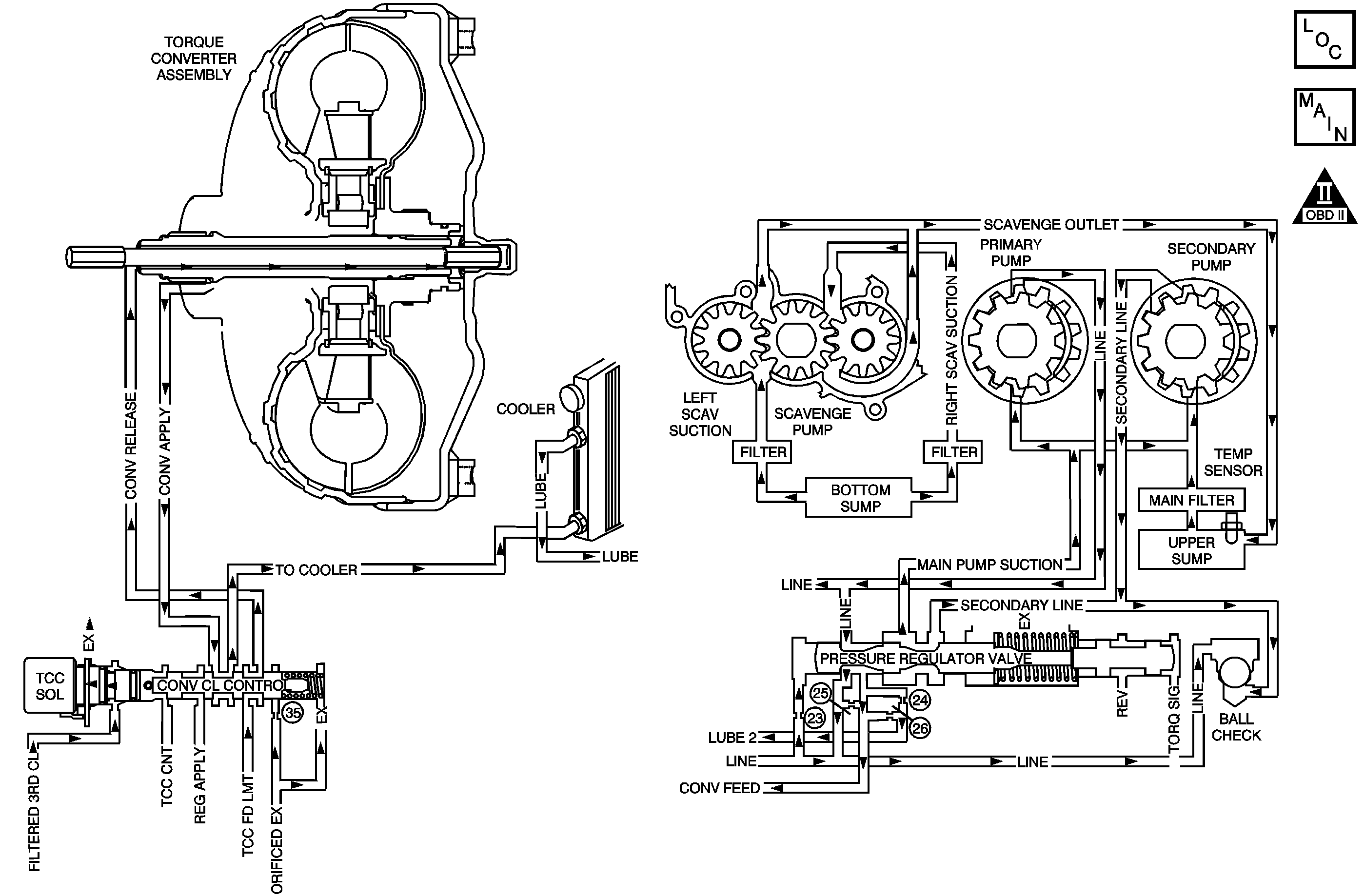
Circuit Description
The automatic transmission fluid temperature (TFT) sensor is a negative coefficient thermistor. When the transmission fluid is cold, the sensor resistance is high. As the transmission fluid warms up, the sensor resistance becomes lower. The PCM uses TFT information to control torque converter clutch apply and release, line pressure, and shift time. The TFT range is from -40°C to +151°C (-40°F to +305°F).
If the PCM detects a high transmission fluid temperature for an extended period of time on the TFT sensor circuit, then DTC P0218 sets. DTC P0218 is a type C DTC.
Conditions for Running the DTC
The transmission fluid temperature is -38° to +143°C (-36° to +289°F).
Conditions for Setting the DTC
The transmission fluid temperature is greater than 132°C (270°F) for 10 minutes.
Action Taken When the DTC Sets
| • | The PCM does not illuminate the malfunction indicator lamp (MIL). |
| • | TRANSMISSION HOT message displays on the driver information center (DIC). |
| • | The PCM freezes transmission adapt functions. |
| • | The PCM records the operating conditions when the Conditions for Setting the DTC are met. The PCM stores this information as Failure Records. |
| • | The PCM stores DTC P0218 in PCM history. |
Conditions for Clearing the DIC/DTC
| • | The PCM clears the DIC message when the condition no longer exists. |
| • | The transmission fluid temperature is less than 130°C (266°F) for 5 seconds. |
| • | A scan tool can clear the DTC. |
| • | The PCM clears the DTC from PCM history if the vehicle completes 40 warm-up cycles without a non-emission-related diagnostic fault occurring. |
| • | The PCM cancels the DTC default actions when the fault no longer exists and the DTC passes. |
Diagnostic Aids
Ask the customer about overloading the vehicle, exceeding the trailer-towing limit, or towing in Overdrive.
Test Description
The numbers below refer to the step numbers on the diagnostic table:
Step | Action | Value(s) | Yes | No | ||||||||||||||||||||||||||||||||||||
|---|---|---|---|---|---|---|---|---|---|---|---|---|---|---|---|---|---|---|---|---|---|---|---|---|---|---|---|---|---|---|---|---|---|---|---|---|---|---|---|---|
1 | Did you perform the Powertrain Diagnostic System Check? | -- | Go to Step 2 | Go to Diagnostic System Check - Engine Controls in Engine Controls | ||||||||||||||||||||||||||||||||||||
Did you perform the Transmission Fluid Checking Procedure? | -- | Go to Step 3 | Go to Transmission Fluid Check | |||||||||||||||||||||||||||||||||||||
3 |
Did you complete the repair? | -- | Go to Step 4 | -- | ||||||||||||||||||||||||||||||||||||
4 | Perform the following procedure in order to verify the repair:
Has the test run and passed? | -- | System OK | Go to Step 1 |
